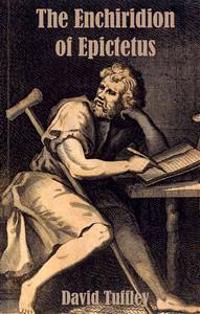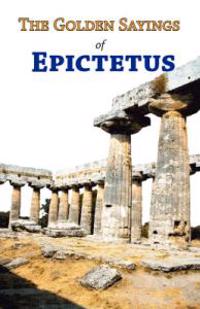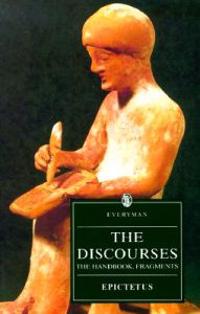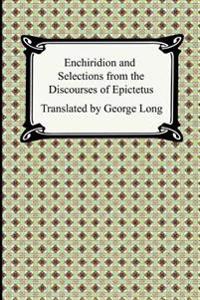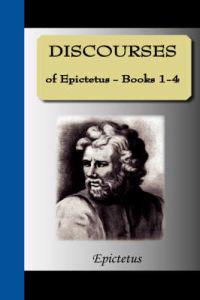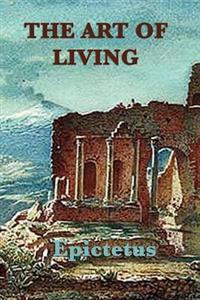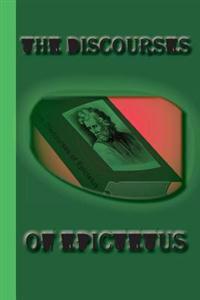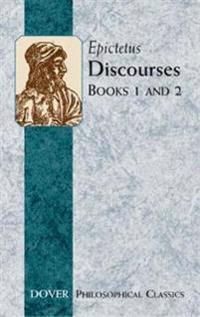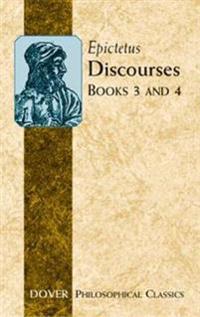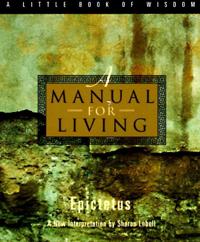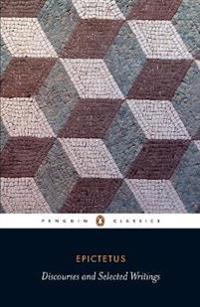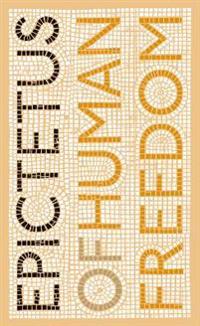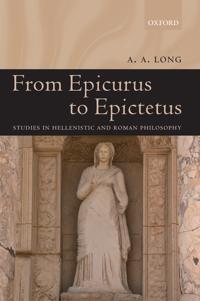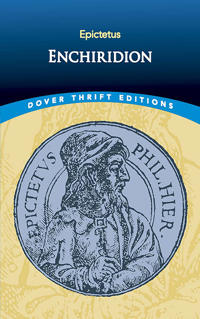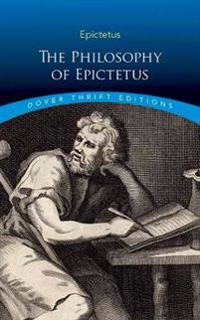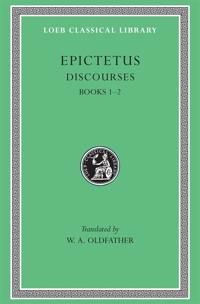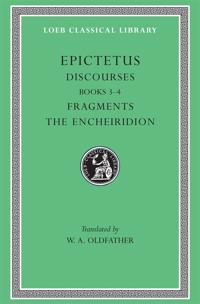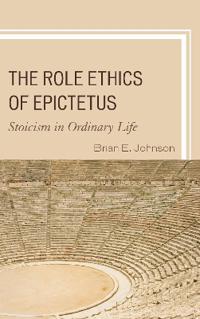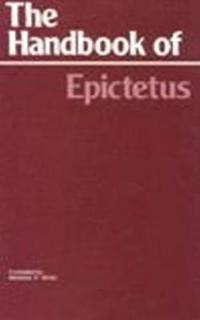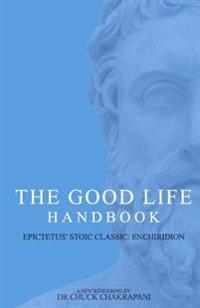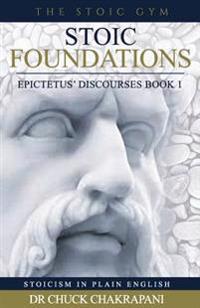The Enchiridion of Epictetus: The Handbook of Epictetus (Häftad)
avEpictetus
ISBN: 9781468051957 - UTGIVEN: 201111The Golden Sayings of Epictetus (Pocket)
avEpictetus, Hastings (TRN) Crossley, Epictetus
ISBN: 9781604502121 - UTGIVEN: 2008-04The Discourses of Epictetus (Storpocket)
avEpictetus
ISBN: 9780460873123 - UTGIVEN: 199503For centuries, Stoicism was virtually the unofficial religion of the Roman world
Yet the stress on endurance, self-restraint and the power of the will to withstand calamity can often seem coldhearted. It is Epictetus, a lame former slave exiled by the Emperor Domitian, who offers by far [...]Enchiridion and Selections from the Discourses of Epictetus (Häftad)
avEpictetus
ISBN: 9781420925791 - UTGIVEN: 2005-01Epictetus was an ancient Greek philosopher who lived between 55 and 135 AD and taught the philosophy of stoicism. Stoicism is the school of philosophy that teaches one to detach oneself from ones emotions so that truth may be derived from ones reason. To the stoic this detachment allows the natural [...]
Discourses (Pocket)
avEpictetus, P. E. Matheson, Epictetus
ISBN: 9780486434438 - UTGIVEN: 200405In this compilation of Books 3 and 4 of Epictetus' "Discourses" -- the second of a two-volume set -- the philosopher discusses the quest for freedom, the nature of solitude, cynicism, fear, discretion, the avoidance of quarrels, and other subjects of enduring interest and concern.
[...]A Manual for Living (Häftad)
avEpictetus
ISBN: 9780062511119 - UTGIVEN: 199507The essence of perennial Stoic wisdom in aphorisms of stunning insight and simplicity. The West' s first and best little instruction book offers thoroughly contemporary and pragmatic reflections on how best to live with serenity and joy.[...]
Discourses and Selected Writings (Storpocket)
avEpictetus
ISBN: 9780140449464 - UTGIVEN: 200808Epictetus, a Greek stoic and freed slave, ran a thriving philosophy school in Nicropolis in the early second century AD. His animated discussions were celebrated for their rhetorical wizardry and were written down by Arrian, his most famous pupil. Together with the "Enchiridion", a manual of his mai[...]
Of Human Freedom (Häftad)
avEpictetus
ISBN: 9780141192352 - UTGIVEN: 201008In this personal and practical guide to moral self-improvement and living a good life, the second-century philosopher Epictetus tackles questions of freedom and imprisonment, stubbornness and fear, family, friendship and love, and leaves an intriguing document of daily life in the classical world. "[...]
Epictetus (Pocket)
avA. A. Long
ISBN: 9780199268856 - UTGIVEN: 2004-01-08The philosophy of Epictetus, a freed slave in the Roman Empire, has been influential on Western thought: it offers not only stimulating ideas but also practical guidance in living one's life. This work gives the presentation of the thought of Epictetus. It is intended for those interested in what we[...]
From Epicurus to Epictetus (Häftad)
avA.A. Long
ISBN: 9780199279128 - UTGIVEN: 200609A.A. Long, one of the world's leading writers on ancient philosophy, presents eighteen essays on the philosophers and schools of the Hellenistic and Roman periods---Epicureans, Stoics, and Sceptics. The discussion ranges over four centuries of innovative and challenging thought in ethics and politic[...]
Epictetus' Handbook and the Tablet of Cebes (Pocket)
avKeith Seddon
ISBN: 9780415324526 - UTGIVEN: 2006-01This new translation presents two works, one by Epictetus and the other by Cebes, two ancient Greek philosophers of the Imperial period, in new translations of clear, straightforward English. In this book, readers will learn how to sustain emotional harmony and a 'good flow of life' whatever fortune[...]
The Philosophy of Epictetus
ISBN: 9780486811239 - UTGIVEN: 2017-02In this collection of two brief but highly influential works, Epictetus' Stoic philosophy addresses the nature of fate and man's place in the universe. The philosopher also explores the distinction between what is and is not within our power, the meaning of good and evil, how we should live, the imp[...]
Discourses (Inbunden)
avEpictetus
ISBN: 9780674991453 - UTGIVEN: 192506Epictetus was a crippled Greek slave of Phrygia during Nero's reign (54-68 CE) who heard lectures by the Stoic Musonius before he was freed. Expelled with other philosophers by the emperor Domitian in 89 or 92 he settled permanently in Nicopolis in Epirus. There, in a school which he called 'healing[...]
Discourses (Inbunden)
avEpictetus
ISBN: 9780674992405 - UTGIVEN: 192806Epictetus was a crippled Greek slave of Phrygia during Nero's reign (54-68 CE) who heard lectures by the Stoic Musonius before he was freed. Expelled with other philosophers by the emperor Domitian in 89 or 92 he settled permanently in Nicopolis in Epirus. There, in a school which he called 'healing[...]
The Role Ethics of Epictetus (Inbunden)
avBrian Earl Johnson
ISBN: 9780739179673 - UTGIVEN: 2013-12The Role Ethics of Epictetus: Stoicism in Ordinary Life offers an original interpretation of Epictetus's ethics and how he bases his ethics on an appeal to our roles in life. Epictetus believes that every individual is the bearer of many roles from sibling to citizen and that individuals are morally[...]
Courage Under Fire: Testing Epictetus's Doctrines in a Laboratory of Human Behavior (Häftad)
avJames B. Stockdale
ISBN: 9780817936921 - UTGIVEN: 199301The Handbook (The Encheiridion) (Häftad)
avEpictetus
ISBN: 9780915145690 - UTGIVEN: 198301Handbook of Epictetus also known as Enchiridion written by legendary Greek Stoic philosopher Epictetus is a manual of Stoic ethical advice. Compiled by Arrian, who was a student of Epictetus, this great classic will surely attract a whole new generation of readers. For many, the Handbook of Epictetu[...]
The Good Life Handbook: Epictetus' Stoic Classic Enchiridion (häftad)
ISBN: 9780920219140 - UTGIVEN: 2016-11Stoic Foundations: Epictetus' Discourses Book 1 (häftad)
ISBN: 9780920219249 - UTGIVEN: 2017-07Stoic Foundations is the plain English version of Discourses Book 1 by the eminent Stoic philosopher Epictetus. It reveloves around 10 themes which arw also repeated in other places throughout Discourses. These are: * Concern yourself with only what is in your power* Be content to let things happen [...]
Stoic Choices: Epictetus' Discourses Book 2 (häftad)
ISBN: 9780920219287 - UTGIVEN: 2017-11Stoic Choices is the plain English version of Discourses Book II by the eminent Stoic philosopher, Epictetus. Here are some of the choices discussed in this book: What should you act upon: External things or internal things?When should you choose to be confident and when to be cautious in making de[...]

